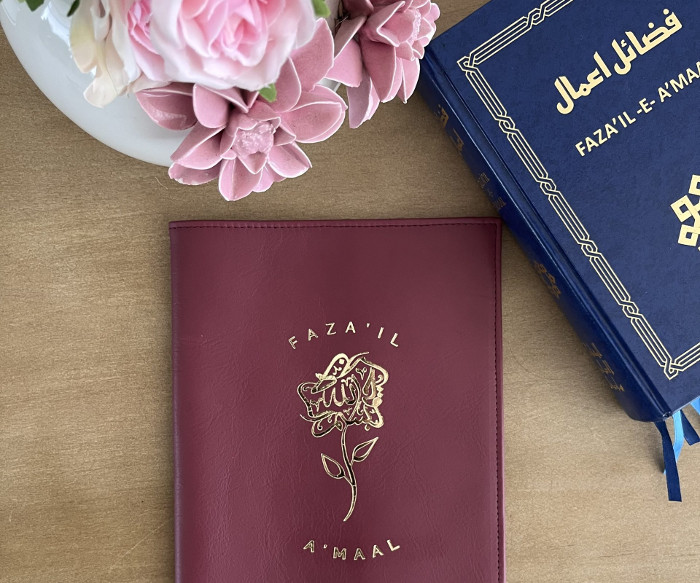
Hazrat Bilaal (radhiyallahu ‘anhu) and His Sufferings
Hazrat Bilaal (radhiyallahu ‘anhu) is a famous Sahaabi among the galaxy of Sahaabah (radhiyallahu ‘anhum), and was the muazzin of the Prophet’s (sallallahu ‘alaihi wasallam) musjid. Initially, he was an Abyssinian slave of a disbeliever in Makkah Mukarramah. His conversion to Islam was, naturally, not liked by his master and he was therefore persecuted mercilessly.
Ummayah bin Khalaf, who was the worst enemy of Islam, would make him lie down on the burning sand at midday and would place a heavy stone on his breast, so that he could not even move a limb. He would then say to him, “Renounce Islam, or swelter and die.”
Even under these afflictions, Hazrat Bilaal (radhiyallahu ‘anhu) would exclaim, “Ahad! (The One Allah!) Ahad! (The One Allah!)”
At night, he was bound in chains and whipped, and with the cuts thus received, made to lie on the burning ground during the day to make him either forsake Islam or to die a lingering death from wounds. The torturers would get tired and take turns. At times, Abu Jahl would torture him, while at other times, Umayyah or someone else would inflict the punishment, and they would vie with one another in afflicting more and more painful punishment, but Hazrat Bilaal (radhiyallahu ‘anhu) would not yield.
Seeing the extreme suffering that Hazrat Bilaal (radhiyallahu ‘anhu) was undergoing, Hazrat Abu Bakr (radhiyallahu ‘anhu) bought his freedom, and he became a free Muslim.
As Islam taught implicitly the oneness of the Almighty Creator, while the idolaters of Makkah Mukarramah believed in many gods and goddesses, therefore Hazrat Bilaal (radhiyallahu ‘anhu) repeated, “Ahad! (The One Allah!) Ahad! (The One Allah!)” This shows his love and devotion to Allah Ta‘ala.
When we look at the worldly love which people have in their hearts for their beloved, then the condition of such love is that when the lover takes the name of his beloved, he experiences great pleasure and joy. He continues to recite the name of the beloved to himself over and over, though it benefits him in no way. When this is the condition of the love of this world, then one can imagine the condition of the person whose heart is filled with the love of Allah Ta‘ala – the Being whose love will benefit one in this world and the next!
It is for this reason that though different types of torments were inflicted upon Hazrat Bilaal (radhiyallahu ‘anhu), and though he was made to suffer the worst of punishments, until he was even handed over to the urchins of Makkah to drag him through the streets – even at that time, Allah Ta‘ala was so dear and beloved to him that he continued to call out “Ahad! Ahad” while being dragged behind them.
Look how Allah Ta‘ala rewarded his steadfastness! He was to have the honour of becoming the Prophet’s (sallallahu ‘alaihi wasallam) muazzin. He was always to remain with him at home and abroad to call out the azaan for his salaah.
After the Prophet’s (sallallahu ‘alaihi wasallam) demise, it became very hard for him to continue his stay in Madinah Munawwarah, where he would miss Rasulullah (sallallahu ‘alaihi wasallam) at every step and in every corner. He therefore left Madinah Munawwarah, and decided to pass the rest of his life striving in the path of Allah. In this manner, some period of time passed without him returning to Madinah Munawwarah.
Once, he beheld the Prophet (sallallahu ‘alaihi wasallam) in his dream saying to him, “O Bilaal! How is it that you are not coming to visit me?”
No sooner did he get up than he set out for Madinah Munawwarah. On reaching there, Hazrat Hasan and Hazrat Husain (radhiyallahu ‘anhuma) – the Prophet’s (sallallahu ‘alaihi wasallam) grandsons – requested him to call out the azaan. He could not refuse them, for they were very dear to him. But as soon as the azaan was called, the people of Madinah Munawwarah cried openly out of their anguish at the memory of the happy old days of the Prophet’s (sallallahu ‘alaihi wasallam) time. Even the women came out of their houses weeping.
Hazrat Bilaal (radhiyallahu ‘anhu) left Madinah Munawwarah again after a few days and passed away in Damascus around the year 20 A.H.
(Fazaa’il-e-A’maal [English] pg. 21-22, [Urdu] pg. 16-17)
 Ihyaaud Deen An Effort to Revive Deen in Totality
Ihyaaud Deen An Effort to Revive Deen in Totality



